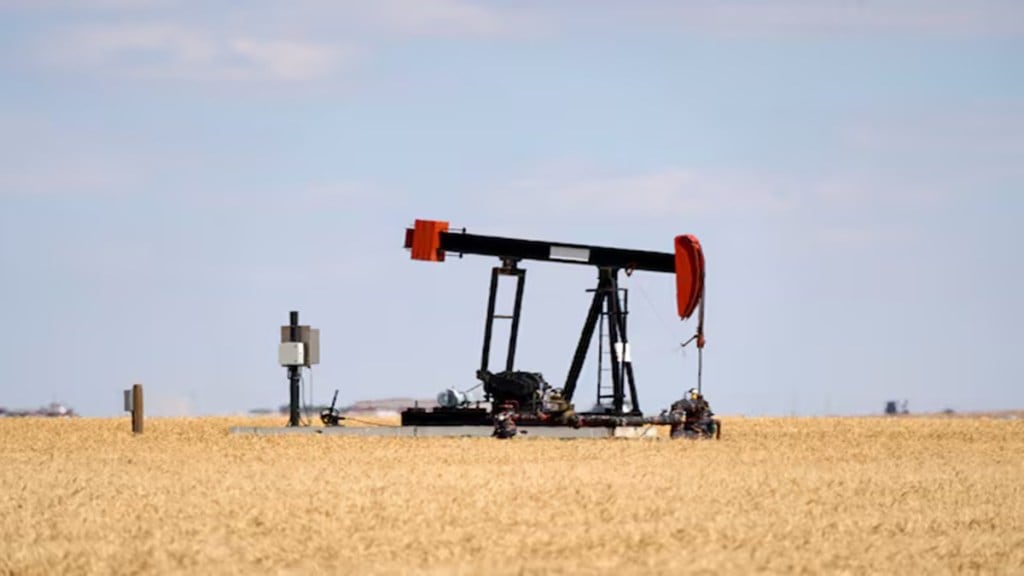Crude oil prices are expected to go up further as a result of the escalating geopolitical tensions in the Middle East following the US air strikes on three Iranian nuclear facilities.
As India procures a large part of its oil and gas demand from West Asia, it remains vulnerable to potential supply and price shocks.
Any disruption of the shipping routes near the region are likely to result in increased crude prices. A rise in prices of crude oil would impact the demand and profitability of the downstream companies and hurt the country as it imports as much as 88% of its crude oil requirements, analysts say. They expect Brent to “remain upwards of $75/barrel in the near term.”
“Any geopolitical tension in the world can result in an added speculative risk premium to the prices,” said an analyst who did not wish to be named. Speculative risk is the price uncertainty and the possibility for losses in an investment.
US President Donald Trump on Saturday said that the United States military had struck three nuclear-related facilities in Iran – Fordow, Natanz, and Esfahan, marking its direct role in the ongoing conflict.
The escalation has raised concerns of Iran blocking the key route for energy trade – the Strait of Hormuz, accounting for over 20% of world oil and gas supply.
“As 20% of world oil and LNG trade happens through Strait of Hormuz, which Iran straddles, therefore escalation of conflict could have supply shocks for both these commodities. As loading ports are on the Strait of Hormuz with no alternate arrangements for most of these supplies, the risk is high in case the conflict escalates,” Prashant Vasisht, Senior Vice President and Co-Group Head, Corporate Ratings, Icra had said.
Iran produces around 3.3 million barrels per day of crude oil (~3% of global supply) and exports ~1.5 million barrels per day with China being the main importer (80%), followed by Turkey. Iran is also on the northern side of the Strait of Hormuz or Persian Gulf through which over 20 million barrels per day of oil trade flows with Saudi Arabia, UAE.
In the past, Iran has warned of blocking the route which could potentially hurt oil flows. Any disruption around the Strait of Hormuz may affect oil shipments coming from Iraq, Saudi Arabia, and the UAE— who are key suppliers for India.
Amit Kumar, Partner and Energy & Renewables Industry Leader at Grant Thornton Bharat noted that even if direct imports from Iran are minimal, global price spikes due to conflict will raise crude oil import costs for India.
India’s oil import bill declined by 16.6% during the first two months of financial year 2025-26, reaching $22.0 billion compared to $26.4 billion in the same period of FY24, according to data from the Petroleum Planning and Analysis Cell. In FY25, the bill rose by 2.7% reaching $137.0 billion compared to $133.4 billion in FY24.
“Iran holds about 9% of the world’s oil reserves, and any disruption could impact several key Indian sectors, including oil marketing companies, paints, as well as the automobile and cement industries,” said Naveen Vyas, Senior Vice President, Anand Rathi Global Finance. “These sectors may experience demand slowdown or margin pressure if tensions escalate and persist for more than 3–6 months, particularly if Brent crude prices rise above the $82–85 per barrel mark,” he said.
For oil and gas producing companies, higher international crude oil prices typically lead to improved margins and increased earnings.
“Additionally, potential supply disruptions and geopolitical crises can increase freight and insurance costs further affecting the profitability of refining and marketing companies. Moreover, in the event of supply disruptions from the Middle East, refiners may need to seek alternative sources of crude oil,” Kumar said.
The government had also earlier said that the rising geopolitical tensions in different regions across the world has contributed to increased freight rates and has disrupted energy trade. Indian exports of petroleum products which have rebounded in May could again face risk if the situation escalates.
Emkay Global Financial Services projects Brent prices to be at $70/bbl in FY26 with Q1FY26 likely to average at $67-69/bbl.
Kumar also said that depending on the duration and intensity of this conflict in the Middle East, one can assume higher prices – upwards of $75/bbl in the near term. Since the beginning of the conflict on June 13, crude prices have risen from $64-65/bbl to $74-75/bbl.
Union Minister of Petroleum and Natural Gas Hardeep Singh Puri last week said that India is reviewing the global oil supply situation and the emerging tensions between Israel and Iran on a daily basis and there is no concern on oil supplies and the country has sufficient domestic stocks available.

